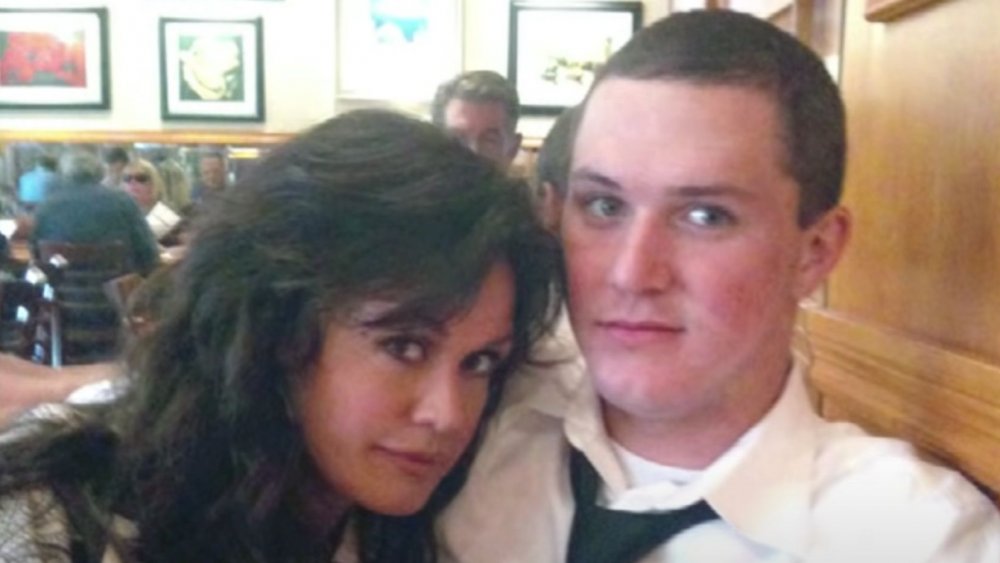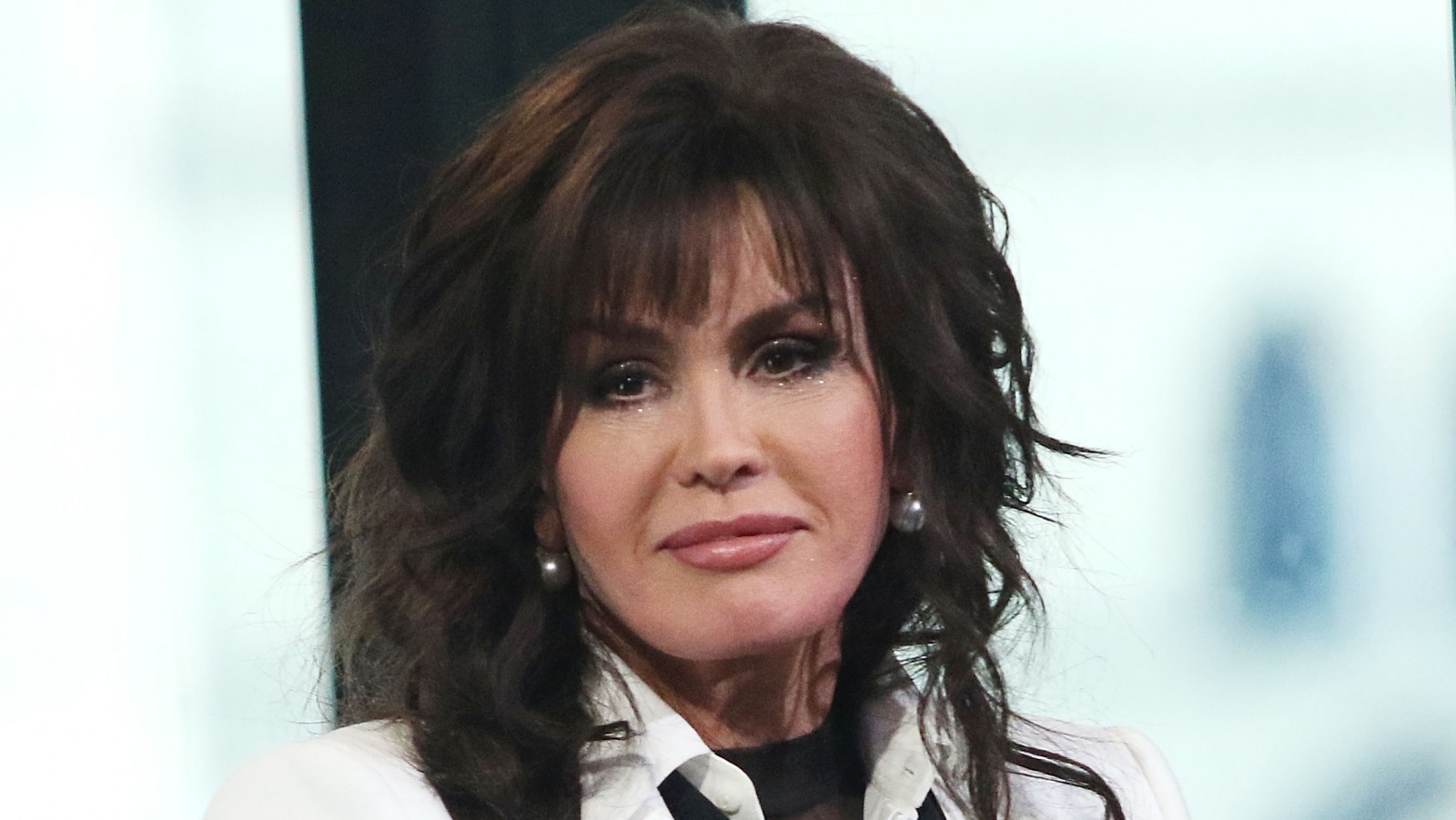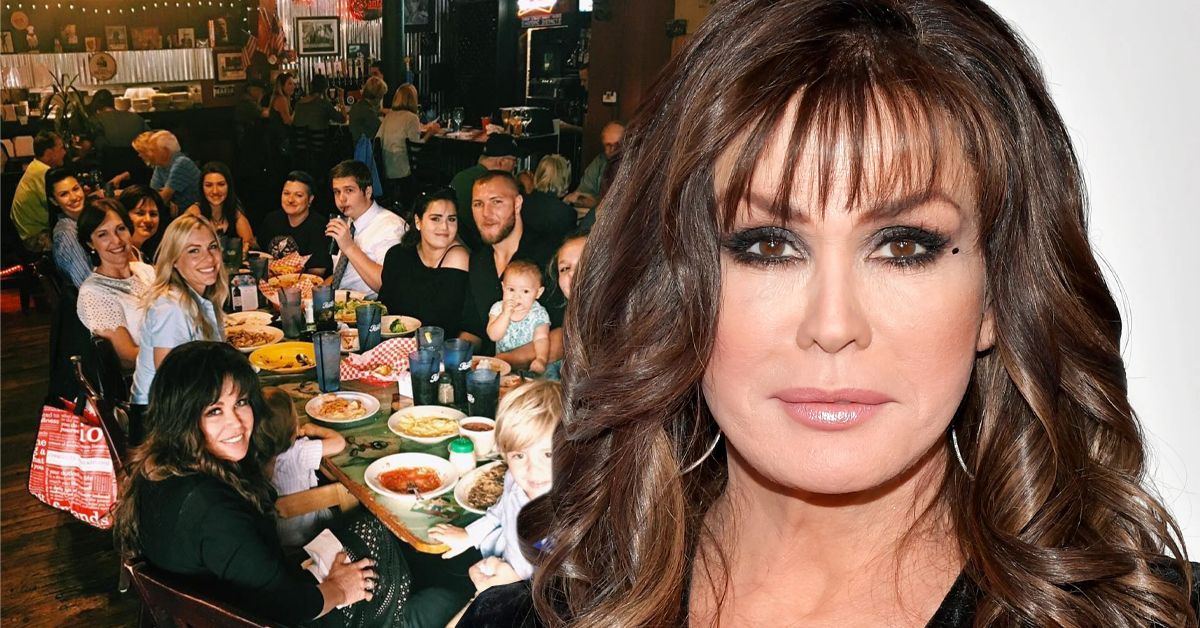Life can be unpredictable, and sometimes it throws us curveballs that leave us heartbroken and searching for answers. The tragic loss of Marie Osmond's son, Michael Blosil, sent shockwaves through the entertainment world and left fans questioning why such a promising young man would take his own life. This story is not just about one family's heartbreak; it’s also a wake-up call for all of us to understand the complexities of mental health and the silent battles people face every day.
Marie Osmond is no stranger to the spotlight, but this time, the focus wasn’t on her music or performances. It was on a deeply personal tragedy that touched her life and the lives of those who loved her. Michael Blosil’s death in 2010 became a turning point for conversations around mental health, and it highlighted the importance of addressing these issues openly and honestly.
As we delve into the reasons behind this heartbreaking event, let’s explore the circumstances surrounding Michael’s life, the challenges he faced, and how we can learn from his story to prevent similar tragedies in the future. Buckle up because this is going to be an emotional yet enlightening journey.
Read also:Today Show Hosts Reveal Their Ultimate Summer Playlists
Table of Contents
- Biography of Marie Osmond and Her Family
- The Tragic Event: What Happened?
- Understanding Mental Health Struggles
- The Role of Family Support
- Societal Pressure on Celebrities
- Warning Signs to Watch Out For
- Prevention and Intervention Strategies
- The Impact on Marie Osmond and Her Family
- Lessons Learned from Michael’s Story
- Conclusion: Moving Forward with Compassion
Biography of Marie Osmond and Her Family
Marie Osmond is more than just a singer and entertainer; she’s a mother, a sister, and a daughter who has faced her share of challenges. Born into the famous Osmond family, Marie grew up in the public eye, performing alongside her brothers and eventually carving out her own successful career. But behind the glitz and glamour, there are real people dealing with real problems.
Marie Osmond’s Personal Life
Marie married Brian Blosil in 1988, and together they had eight children, including Michael Blosil, their second son. Despite their success and wealth, the Osmond-Blosil family was not immune to the struggles that many families face. Michael’s passing shed light on the fact that even those who seem to have everything can still battle inner demons.
Here’s a quick look at some key details about Marie and her family:
| Name | Role | Birth Year | Known For |
|---|---|---|---|
| Marie Osmond | Mother/Singer | 1959 | Music, TV, and Performing |
| Brian Blosil | Father | 1953 | Former Businessman |
| Michael Blosil | Son | 1989 | Aspiring Musician |
The Tragic Event: What Happened?
On December 25, 2010, the world was stunned by the news of Michael Blosil’s death. The 21-year-old was found in the garage of his parents’ home in Alpine, Utah, after apparently taking his own life. According to reports, Michael had been battling depression and anxiety for years, and despite his family’s efforts to help him, he ultimately couldn’t overcome his struggles.
This tragedy serves as a reminder that mental health issues don’t discriminate based on wealth, fame, or success. Even someone with loving parents and a supportive family can still feel overwhelmed and lost.
Understanding Mental Health Struggles
Mental health is often misunderstood, and many people struggle in silence without seeking help. For Michael, his battles with depression and anxiety were deeply personal, and they likely affected every aspect of his life. Let’s break down some of the factors that may have contributed to his struggles:
Read also:Karen E Laine Returns To Instagram Life Updates Projects And Personal Reflections
- Genetics: Mental health conditions can sometimes run in families, and Michael may have been predisposed to depression due to genetic factors.
- Environmental Factors: Growing up in the public eye and facing high expectations can be stressful for anyone, especially a young person trying to find their place in the world.
- Personal Challenges: Michael was an aspiring musician, and the pressure to succeed in such a competitive field might have added to his stress.
Common Misconceptions About Mental Health
There are still many myths surrounding mental health, and these misconceptions can prevent people from getting the help they need. Some common myths include:
- Depression is just feeling sad and will go away on its own.
- People with mental health issues are weak or flawed.
- Talking about suicide increases the risk of it happening.
It’s crucial to dispel these myths and create a more compassionate and understanding society.
The Role of Family Support
Marie and her family have been open about their grief and their efforts to support Michael during his lifetime. They sought professional help, encouraged him to talk about his feelings, and tried to provide a safe and loving environment. However, even the most supportive family can’t always prevent a loved one from making a tragic decision.
Family support is vital, but it’s not a cure-all. Mental health conditions require specialized treatment, and sometimes, despite everyone’s best efforts, the outcome can still be heartbreaking.
Societal Pressure on Celebrities
Being part of a famous family comes with its own set of challenges. The Osmond family has always been in the public eye, and while this brought them success and fame, it also placed immense pressure on them to maintain a certain image. For young people like Michael, this pressure can be overwhelming.
Society often expects celebrities to be perfect, but the truth is that they face the same struggles as everyone else. The difference is that their lives are constantly scrutinized, making it harder to seek help without fear of judgment.
Warning Signs to Watch Out For
Recognizing the warning signs of mental health issues is crucial for preventing tragedies like Michael’s. Some common signs include:
- Withdrawing from friends and family
- Changes in sleep patterns or appetite
- Loss of interest in activities once enjoyed
- Expressing feelings of hopelessness or worthlessness
If you notice any of these signs in someone you care about, it’s important to reach out and offer support. Sometimes, simply letting someone know they’re not alone can make all the difference.
Prevention and Intervention Strategies
Preventing mental health crises requires a multi-faceted approach that involves education, awareness, and access to resources. Here are some strategies that can help:
- Education: Teach people about mental health from a young age to reduce stigma and increase understanding.
- Access to Resources: Ensure that mental health services are affordable and accessible to everyone.
- Open Conversations: Encourage people to talk about their feelings without fear of judgment.
What Can You Do?
If you’re concerned about your own mental health or the well-being of someone you know, take action. Reach out to a trusted friend, family member, or mental health professional. Remember, asking for help is a sign of strength, not weakness.
The Impact on Marie Osmond and Her Family
Michael’s death had a profound impact on Marie and her family. In interviews, Marie has spoken candidly about her grief and her mission to raise awareness about mental health issues. She hopes that by sharing her story, she can inspire others to seek help and break the cycle of silence.
This tragedy has also brought the Osmond family closer together, as they work to honor Michael’s memory by advocating for mental health reform and supporting others who are struggling.
Lessons Learned from Michael’s Story
Michael Blosil’s story is a powerful reminder of the importance of mental health awareness and support. Here are some key takeaways:
- Mental health issues can affect anyone, regardless of their background or circumstances.
- Family support is crucial, but it’s not enough on its own.
- Education and resources are essential for preventing mental health crises.
By learning from Michael’s story, we can work towards a future where no one feels alone in their struggles.
Conclusion: Moving Forward with Compassion
The tragic loss of Michael Blosil was a heartbreaking event that touched the lives of many. However, it also opened up important conversations about mental health and the need for greater awareness and support. As we move forward, let’s remember the lessons we’ve learned and strive to create a world where everyone feels valued and understood.
If you’ve been affected by this story or have your own struggles, don’t hesitate to reach out for help. Whether it’s talking to a friend, seeking professional support, or joining a community, there are people who care about you and want to help.
Let’s honor Michael’s memory by continuing the conversation and working towards a brighter, more compassionate future. Share this article, leave a comment, or explore other resources to learn more about mental health. Together, we can make a difference.


